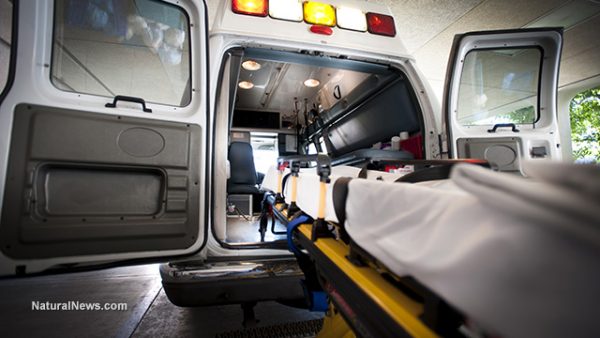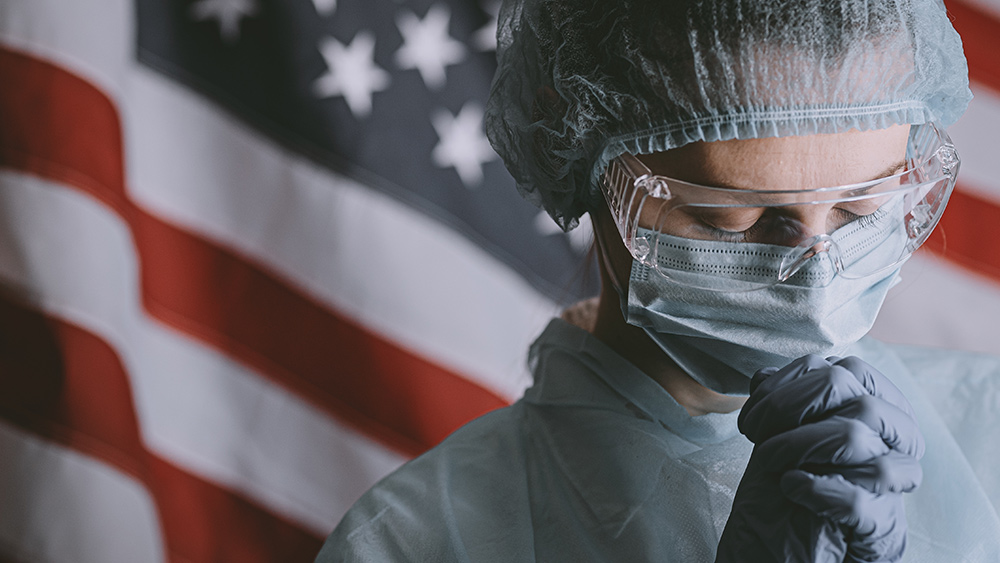 Parler
Parler Gab
Gab
Is America's drug supply chain at risk of collapse?
For the time being, TASA physicians have come up with a viable alternative: using IV bags filled with a lower concentration of dextrose. This will still allow diabetic patients to recover, though at a much slower rate. Instead of reviving them in about a minute like D-50 does, these dextrose IV bags take anywhere from 15 to 20 minutes to get a patient back to consciousness. This could prove problematic for more serious and urgent cases that require faster resuscitation. "It hits home when it's one of the medications that you're using a lot and it's a critical medication," Valentine added. Most ambulatory departments throughout Tennessee have orders placed for D-50 and are just waiting, and waiting, and waiting some more for the drug to arrive. There does not appear to be any indication as to how long this waiting game will take. In the meantime, TASA says it is doing everything it can to care for patients with comparable drugs like the IV dextrose bags, even if they take longer and are not as good. "I think it's more stressful, certainly for the family members that are there," Valentine explained. "You know, they're saying, 'What's taking so long?' And we just have to explain that it's a different concentration, it's a lower dose of sugar, and that it's taking longer to get them back and awake." It turns out that Pfizer is one of the companies that produces D-50 – and Pfizer is in a whole lot of hot water right now over the covid "vaccine" scandal and its involvement in illegal gain of function, or "directed evolution," research. The U.S. Food and Drug Administration (FDA) confirmed that Pfizer sent out a manufacturing delay letter in August 2022, warning that shortages are expected to last until at least December 2023. In addition to not having enough D-50, Valentine also confirmed that ambulances throughout Tennessee are experiencing shortages of important narcotics used in emergency medicine. The good news about most of those, though, is that they are much easier to replace with viable alternatives compared to D-50 and other currently unavailable or in-short-supply drugs. "One big problem America has is an out-of-control federal government," one commenter wrote about why we are seeing so many shortages these days – not to mention the lingering effects of that same government's supply chain-destroying covid tyranny. You can find more stories like this one at Collapse.news. Sources for this article include: WKRN.com NaturalNews.comUnmasking COVID claims: Scientific review challenges claim that masks reduced COVID transmissions
By News Editors // Share
Case manager blows the whistle on Transgender Center at St. Louis Children’s Hospital
By Lance D Johnson // Share
NEVER FORGET: Pfizer, several others sued over dangers caused by PPIs
By Ramon Tomey // Share
Crime City: New York City records highest number of felony crimes in 16 years
By Arsenio Toledo // Share
Russia to shift 75-80% of oil exports to “friendly” nations
By Arsenio Toledo // Share
Common chemicals in shampoo and soap found to increase diabetes risk in women
By Zoey Sky // Share
Governments continue to obscure COVID-19 vaccine data amid rising concerns over excess deaths
By patricklewis // Share
Tech giant Microsoft backs EXTINCTION with its support of carbon capture programs
By ramontomeydw // Share
Germany to resume arms exports to Israel despite repeated ceasefire violations
By isabelle // Share










